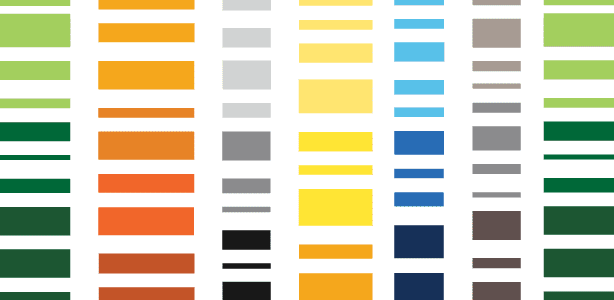The New York Genome Center (NYGC) has received approval from the New York State Department of Health to offer clinical whole exome sequencing for individuals with constitutional disorders. This is the first laboratory-developed test, or LDT, from the Center to be cleared for clinical diagnostic use.
The test is intended for children or adult patients with an undiagnosed condition that suggests an underlying genetic cause. In many cases, patients referred for exome sequencing have been subjected to previous genetic testing that is not as comprehensive as whole exome sequencing and the molecular cause of their condition has not been able to be identified. “Many of the patients we hope to help have been on what the field refers to as a diagnostic odyssey. They have gone from one doctor or hospital to another, trying to figure out what is causing their symptoms,” said Vaidehi Jobanputra, Ph.D., FACMG, Director of Molecular Diagnostics at the New York Genome Center, who led the work to develop the new test.
Under the plan now approved by the State, the Center will offer clinical diagnostic exome sequencing for affected children and their parents, a method known as trio testing. Analyzing sequencing data in the context of family relationships increases the likelihood of identifying genetic variants that may be contributing to symptoms observed in the child. The laboratory will also accept affected or unaffected relatives to provide additional context and help guide interpretation on a case-by-case basis. The clinical exome test is also available for adult patients.
Physicians in New York State will now be able to order the test on behalf of their patients. Typically, clinical exome sequencing can take up to 12-14 weeks, but Dr. Jobanputra hopes to return most results within 6-8 weeks. This rapid turnaround time is realistic for the Center because it uses an automated analysis pipeline to ensure that each case is handled not only rapidly but also carefully, precisely and systematically.
The test was validated using Agilent exome capture reagents to prepare samples for sequencing on the Illumina HiSeq2500 platform. In addition to variants associated with the reported clinical phenotype, the laboratory will report secondary findings in medically actionable genes as per the American College of Medical Genetics and Genomics (ACMG) guidelines. Patients will have the option to opt out of these findings on the informed consent that must accompany each test request. Patients also will be able to opt in to learning their carrier status for autosomal recessive conditions in genes recommended by the ACMG and the American Congress of Obstetricians and Gynecologists (ACOG) for reproductive carrier screening. “This allows NYGC to bring state of the art medical care—which today includes genomic sequencing—to patients throughout New York,” said Robert Darnell, MD, PhD, President and Scientific Director of NYGC. “Integration of this capability with the research and clinical needs of our partner institutions will enable us, together, to better identify genetic variants and thereby advise doctors how to more specifically treat the root cause of what makes patients sick.”
The laboratory is preparing to submit additional LDTs, including a whole exome sequencing test for cancer, a whole genome sequencing test for genetic disorders and a whole genome sequencing test for cancer.
About the New York Genome Center
The New York Genome Center (NYGC) is an independent nonprofit at the forefront of transforming biomedical research and clinical care with the mission of saving lives. As a consortium of renowned academic, medical and industry leaders across the globe, NYGC focuses on translating genomic research into clinical solutions for serious disease. Our member organizations and partners are united in this unprecedented collaboration of technology, science, and medicine. We harness the power of innovation and discoveries to improve people’s lives – ethically, equitably, and urgently. Member institutions include: Albert Einstein College of Medicine, American Museum of Natural History, Cold Spring Harbor Laboratory, Columbia University College of Physicians and Surgeons, Cornell University/Weill Cornell Medical College, Hospital for Special Surgery, The Jackson Laboratory, Memorial Sloan Kettering Cancer Center, Icahn School of Medicine at Mount Sinai, NewYork-Presbyterian Hospital, The New York Stem Cell Foundation, New York University, North Shore-LIJ, The Rockefeller University, Roswell Park Cancer Institute, Stony Brook University and IBM. For more information, visit: www.nygenome.org.
